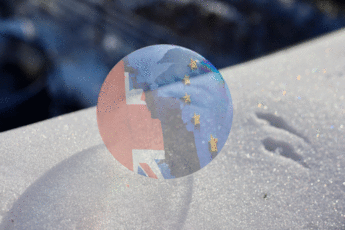Distanzlernen einmal anders… Rund 120 Schülerinnen und Schüler der Q1 folgten am Montag, 8. Februar, einem Online-Vortrag zum Thema Brexit. Dank der unverwüstlichen Videokonferenzfunktion von Teams, die sich vom Schneechaos auf Münsters Straßen völlig unbeeindruckt zeigte, kam die Referentin, Louise Carleton-Gertsch, glasklar in allen Arbeitszimmern an und sorgte für eine unterhaltsame Veranstaltung mit vielen neuen Einblicken in ein inzwischen schon fast altes Thema. Ermöglicht wurde diese höchst willkommene Abwechslung durch die großzügige Finanzierung des Fördervereins, der das komplette Honorar der Referentin übernommen hat. Dafür an dieser Stelle noch einmal herzlichen Dank!
Wie der Vortrag in der Schülerschaft angekommen ist, zeigt der folgende Beitrag:
“Brexit – seen through the eyes of a Brit”: an online guest lecture by Louise Carleton-Gertsch
by Anna Seebohm, Q1
BREXIT: An often-mentioned term that describes the exit of the UK from the European Union –merging the words Britain and exit. Everybody has heard about it, but still, many of us don’t know the background. What were the reasons for the UK wanting to leave the EU? How did people vote on Brexit? Why did the actual Brexit take so long after the referendum? All these questions were raised by Louise Carleton-Gertsch, a British freelance media consultant, who was invited by Ms. Mormann to give a guest lecture to all English students of Q1 last Monday. Because of the current situation, the presentation was given online in a video meeting, but still, it did not lose any of its authenticity and over 120 participants were able to follow it.
The talk began with a nice little insight into the chocolate trade in the EC (nowadays the EU), which was a big issue for the British, who were not allowed to sell their chocolate independently of European standards about 60 years ago, when they decided to join the EC. This example showed us that there have always been British discords in the past. But why did the British people decide to leave the EU? Louise Carleton-Gertsch gave us the answer to this question. She presented the different parties (Remainers vs. Leavers) with their basic aims and the important dates in the history of Brexit. In 2016 the UK voted to leave the EU. After that, the problems began. There were different opinions on how to deal with Brexit and the contracts that needed to be made with other countries. There were many negotiations and the final Brexit was delayed several times until 31st December 2020 when Britain finally left the EU, more than two years later than planned.
The insight into British Brexit policy allowed us students to experience a completely new point of view. Brexit is much more complex than we thought in the past. Ms. Carleton-Gertsch’s point of view was very comprehensible to us because she presented it convincingly and explained her points with examples. Her PowerPoint presentation also helped to illustrate the issues.
We, the students, were very impressed by the complexity of Brexit and really appreciated this extraordinarily informative and easy-to-understand lecture. Our special thanks goes to the Förderverein of Paulinum, which generously and unceremoniously sponsored the talk. It was a very welcome change from the daily routine of distance learning!


